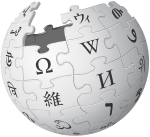People hate Wikipedia. Its lack of credibility as a reliable source makes students avoid the site like a plague, despite its appallingly simple concept- condense all knowledge into a free online encyclopedia. I confess that I, too, feel ridiculous looking something up on Wikipedia. I trace this back to the idea drilled into us in elementary school that this was a shameful thing to do, and there were much harder and therefore better ways to find out simple facts like when The Great Depression took place.
This is deplorable. The public school system may be considered the bowels of education- it takes the fruit of knowledge and turns it into something uniform and frankly disgusting.
I think we can find that this attitude isn’t something new at all- even during the Renaissance, learned humanists balked at the the audacious accessibility of knowledge that the printing press offered. Knowledge seemed cheapened when any common person could find the information on a printed page rather than in a highly valuable one-of-a-kind journal.
Yet instead of causing problems, it only expands our horizons. Instead of seeking to limit cheap methods for receiving information, we should seek to make full and thoughtful use of them. Frankly, I think Wikipedia is an ideal primary place to learn about a subject, especially considering their footnotes that can take you to reliable information. Instead of a mistrust for quick information, we should seek to use it to its full potential, exploring new subjects that interest us.
My Dad once recommended that I browse through Wikipedia on a weekly basis and find something that interests me. I suggest we do the same and cease to assume knowledge should only be available to those with grand resources.

wikipedia.org

That's a good argument, but what's to stop people from wasting their time by jumping from link to link? I remember doing so when I was younger, and by the end of my trek the webpage I was looking at had nothing to do with the webpage I had initially looked up.
ReplyDeleteReally enjoyed your bowels of education comparison. Wikipedia rules in my opinion. The requirements for posting have become more strict and as a result the information, as far as I have experienced, has improved. Knowledge gained more easily is simply a wiser use of time. And yes there can be time wasting involved in pouring over wikipedia, but that seems like a better use to me than scrolling through social media which many seem to take as credible these days. Good post!
ReplyDelete